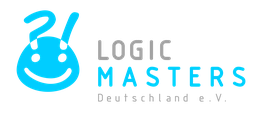Message From Space (Compass Copies #8)
(Eingestellt am 14. Januar 2022, 16:00 Uhr von manushand)
Vielen Dank an starwarigami für das Testen und Verbessern!
- Es gelten die Standard-Sudoku-, Kropki-Paar-, Pfeil- und Ungerade/Gerade-Regeln — nicht alle Beschränkungen werden im Startgitter angezeigt
- Kompass-Zellen
-
Jede Kompasszelle zeigt auf eine andere Zelle in der angegebenen Richtung, die identische Bedingungen (oder fehlende Bedingungen) enthält, wobei der Abstand zu dieser Kopie durch die Ziffer der Zelle angegeben wird.
Für die mit ?? gekennzeichnet sind, muss die Richtung vom Löser bestimmt werden.Im fertigen Rätsel ist jede Kompasszelle mit ihrer Kopie identisch (mit der möglichen Ausnahme der enthaltenen Ziffer).
HINWEIS: Die Lage einiger Pfeilteile, Kreise und Spitzen, muss abgeleitet werden (von kopierten Pfeilteilen, denen Spitzen und Knollen fehlen); diese werden nicht aus bestehenden Zellen kopiert. - Online auflösen
- f-puzzles
CTC
Beachten Sie, dass jede Zelle, die eine Himmelsrichtung oder ?? hat, in ihren Bedingungen (Punkte, gerade/ungerade Markierungen, Pfeilwege/Spitzen/Kreise, Thermometerwege/Spitzen/Kugeln usw.) mit der Zielzelle identisch ist, die durch diese Richtung und die durch die Ziffer in dieser Zelle angegebene Entfernung bestimmt wird.
"Kropki Kopien"
"Kohlepapier"
"Vervielfältiger"
"Xeroxgerät"
"Duplikate"
"Gestetner"
"He Who Has a Tate's"
Lösungscode: Reihe 5
Kommentare
am 17. Januar 2022, 23:53 Uhr von manushand
Added an explanatory sentence about extending arrows (thank you, @SKORP17!)
am 17. Januar 2022, 22:33 Uhr von manushand
Added a graphic example
am 17. Januar 2022, 19:08 Uhr von SKORP17
The circle and arrowhead need NOT be in the same directions/distance in the copy as they are in the original.
Diese Aussage widerspricht doch aber dem Beispiel und der Beschreibung (identische Bedingungen!!).
Ist das jetzt also so zu verstehen, dass lediglich ein Kreis bzw eine Spitze kopiert werden, aber die Ausrichtung eine andere sein kann.
Was ist mit den Linien, können die auch anders ausgerichtet sein? Muss eine geknickte Linie auch im Ziel geknickt sein?
Ich fürchte, die Lösung wird durch diese Unklarheiten sehr erschwert.
am 17. Januar 2022, 02:32 Uhr von jgreenfield
Just for clarity, if a compass cell appears in the middle of an arrow, is the directionality of the arrow and/or distance from the circle/tip retained in the target cell, or does the similarity simply end at the border of the cell? i.e. the target cell just appears in the middle of another arrow with stems leaving in the same directions, but no restrictions on where the circle/tip are. Furthermore, I'm assuming that target arrow segments in adjacent cells (with matched stem directions) will link up into a longer arrow, and shouldn't be treated as independent arrows.
Finally, if a target cell is also a compass cell, can it refer back to its original compass cell as a target? I think I'm fairly close to finishing the puzzle, though I may have broken it horribly as this seems to make the difference as to whether or not I can continue.
--
manushand: Hello @jgreenfield! The copy of a cell to another cell brings only the aspects of that single cell itself; the arrow entering (or leaving) the cell could go in completely different directions outside the copied-to cell that what it does in the cell-copied-from. The circle and arrowhead need NOT be in the same directions/distance in the copy as they are in the original. I hope that makes sense!
Secondly, a target cell may indeed refer back to its Compass Cell as its own target. You have good eyes. :-)



